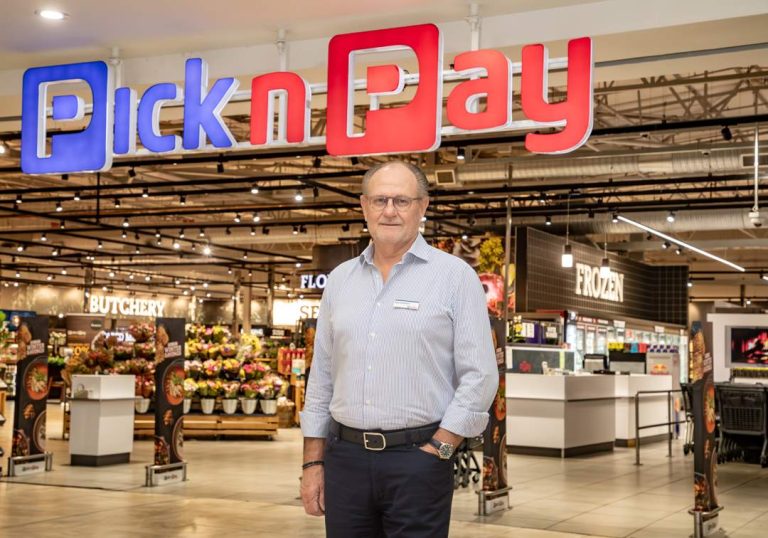Pick n Pay, one of South Africa’s largest retail groups, has reported a significant reduction in losses for the 26 weeks ending 31 August 2025, though its share price took a hit, dropping 6.7 per cent to R30.28 on the Johannesburg Stock Exchange in early trading on Monday. Despite the decline, the stock remains above the R26.48 recorded a year earlier, reflecting cautious investor sentiment as the company pursues a multi-year journey to achieve break-even. According to BusinessLIVE, the retailer’s headline loss per share narrowed by 56.2 per cent to 59.77 cents, driven by operational improvements and savings from a recent recapitalisation effort.
Under the leadership of CEO Sean Summers, appointed in September 2023 to spearhead a comprehensive turnaround, Pick n Pay has made strides in stabilising its core operations. Summers indicated that while profitability remains a long-term target, the company’s investments in retail excellence are laying the groundwork for sustainable growth. The group’s turnover rose by 4.9 per cent, with like-for-like sales increasing by 4.7 per cent, outpacing internal selling price inflation of 2.1 per cent, which compares favourably to the 4.6 per cent CPI food inflation rate reported by Stats SA. This pricing discipline has helped maintain competitiveness, with independent market surveys cited by Moneyweb affirming Pick n Pay’s strengthened position in the retail landscape.
The retailer’s discount arm, Boxer, in which Pick n Pay holds a 65 per cent stake, delivered a standout performance with a 13.9 per cent surge in turnover, reinforcing its role as a growth engine. Meanwhile, Pick n Pay Clothing marked a milestone by opening its 400th standalone store, boosting its market share with a 12 per cent increase in turnover and 7.5 per cent like-for-like growth. Online sales also soared, climbing 34.4 per cent, propelled by the expansion of the asap! delivery service and a 44 per cent rise in grocery orders through Mr D, as noted in Retail Brief Africa. Customer growth accelerated to 7.4 per cent from 3.7 per cent in the prior year, signalling renewed consumer confidence in the brand.
A cornerstone of the turnaround has been the Store Estate Reset programme, now largely completed, which involved closing underperforming supermarkets to streamline operations. Summers explained that future adjustments to the store network would be routine, tied to lease renewals and performance evaluations. The company has also enhanced its customer offering through a sharper focus on fresh produce, an expanded range of own-brand products, and extensive training for over 28,000 store employees, improving the in-store experience. According to IOL, closer collaboration with franchise partners and an improved operating model have further driven gains across the supermarket portfolio, with market share stabilising despite a smaller store footprint.
Looking ahead, Pick n Pay plans to invest R2.2 billion over the full 2025 financial year, with a focus on expanding Boxer and Pick n Pay Clothing while selectively upgrading supermarkets to prioritise customer-facing initiatives. This capital expenditure aligns with the group’s ambition to unlock new growth avenues, such as digital commerce and value-added services, while maintaining fiscal prudence. Business Day highlights that the recapitalisation completed in 2024, which raised R4 billion through a rights issue, has alleviated interest costs, contributing to the reduced headline loss and providing financial flexibility for these investments.
Despite the progress, challenges persist in South Africa’s competitive retail sector, where rivals like Shoprite and Woolworths continue to vie for market dominance. Economic pressures, including high interest rates and subdued consumer spending, have weighed on the industry, yet Pick n Pay’s ability to keep price inflation below market averages has bolstered its appeal to cost-conscious shoppers. Fin24 reports that the retailer’s loyalty programme, Smart Shopper, now serving over 10 million active members, has further strengthened customer retention, with personalised offers driving repeat purchases.
As Pick n Pay navigates this pivotal phase, Summers’ leadership will be tested by the need to balance immediate operational gains with the long-term vision of returning to profitability. The retailer’s focus on digital expansion, franchise partnerships, and targeted store upgrades positions it to capitalise on South Africa’s evolving retail landscape, but the path to break-even remains complex. With tangible signs of recovery emerging, stakeholders are watching closely to see if these efforts will translate into sustained financial health.


